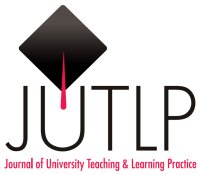Online learning during the COVID-19 pandemic : Does social connectedness and learning community predict self-determined needs and course satisfaction?
The present study investigated whether online students' sense of community and self-determined need satisfaction predicted online course satisfaction during the COVID-19 pandemic. The sample consisted of 136 Australian university students who were studying online during the COVID-19 pandemic. S...
| Institutions: | Monash University Taylor's College (Malaysia) |
|---|---|
| Auteurs principaux: | , , , |
| Publié: |
Journal of University Teaching & Learning Practice v.20 n.1 https://doi.org/10.53761/1.20.01.13
2023
|
| Sujets: | |
| Accès en ligne: | https://doi.org/10.53761/1.20.01.13 |
| Résumé: | The present study investigated whether online students' sense of community and self-determined need satisfaction predicted online course satisfaction during the COVID-19 pandemic. The sample consisted of 136 Australian university students who were studying online during the COVID-19 pandemic. Students completed online surveys for sense of community (i.e., social connectedness and learning community), self-determined need satisfaction (i.e., relatedness, competence, and autonomy), and online course satisfaction. The study results indicated that learning community and social connectedness significantly predicted the self-determined needs and online course satisfaction, with learning community having a large effect size. Autonomy partially mediated the relationship between social connectedness and online course satisfaction; autonomy was the only self-determined need to predict online course satisfaction. It was concluded that online university students require learning communities and social connectedness to meet their needs and have a satisfying learning experience. The self-determined need of autonomy was the most important for student's satisfaction with their course. These findings have implications for universities to build a sense of community in their courses to support students' needs and improve online course satisfaction. [Author abstract] |
|---|---|
| ISBN: |


